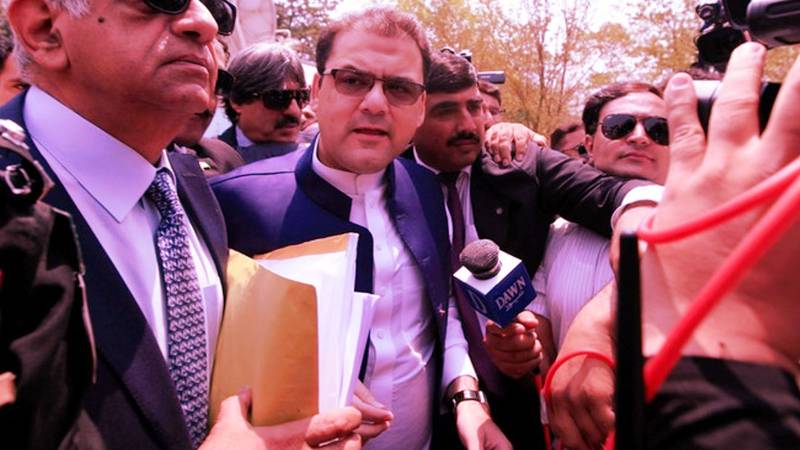
An accountability court has suspended the arrest warrants of Hasan Nawaz and Hussain Nawaz, sons of Pakistan Muslim League-Nawaz (PML-N) supremo Nawaz Sharif, in the Al-Azizia, Flagship, and Avenfield cases.
Accountability Court Judge Nasir Javed Rana announced the judgment reserved earlier today. According to the verdict, the arrest warrants for Nawaz's sons have been suspended until March 14.
It is pertinent to mention here that the warrants for the brothers were issued seven years ago, when the court declared them absconders.
Today's hearing was attended by both brothers' lawyers, Qazi Misbah, as well as National Accountability Bureau (NAB) prosecutors Sardar Muzaffar, Usman Masood, and Sohail Arif.
A petition for the suspension of the warrants was submitted since both brothers want to return to Pakistan on March 12.
Their lawyer, Misbah, revealed the development during the hearing of the Toshakhana reference filed against Nawaz, Pakistan Peoples Party (PPP) Co-Chairman Asif Ali Zardari, and former Prime Minister Yusuf Raza Gilani, in which the politicians are accused of keeping various vehicles in violation of Toshakhana rules.
Misbah stated in his arguments that both brothers were considered absconders in the case, and perpetual warrants were issued against them.
He informed the court that all other suspects had been acquitted in these three cases. According to the lawyer, Hasan and Hussain both wish to return to Pakistan this month and have asked the court to suspend their arrest warrants.
"There were five accused in the Avenfield reference, and three were convicted by the accountability court." "The Islamabad High Court acquitted three accused," he stated.
Arif, a NAB prosecutor, stated that the accused should appear in court as required by law. "They will have to appear, as without it, the warrant of arrest cannot be suspended."
He pointed out that the warrant's objective is to bring the accused to justice and that both brothers should be given the opportunity to appear before the accountability court.
Following the conclusion of both parties' arguments, the accountability court reserved its verdict on the petition.

